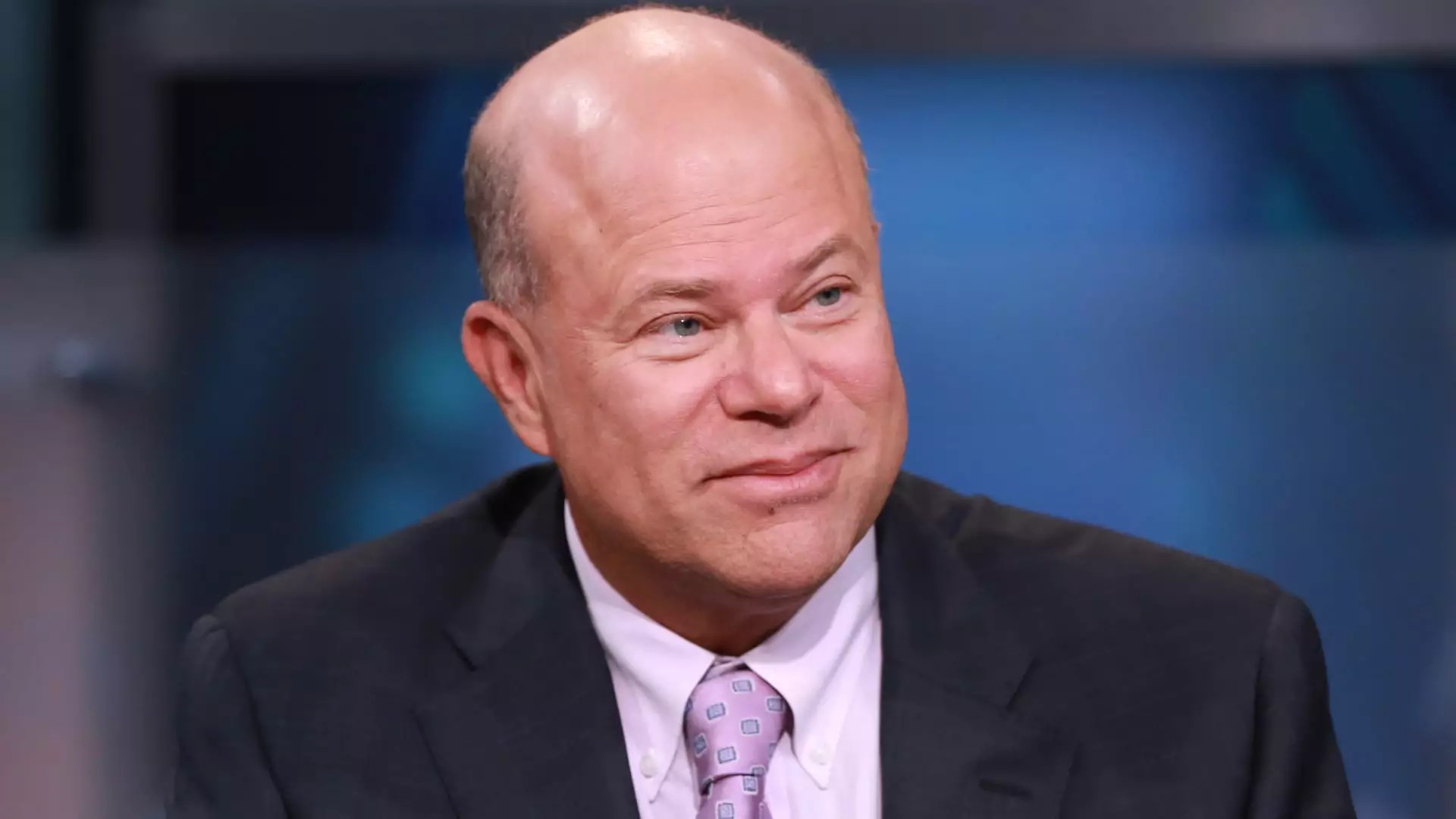David Tepper, the founder of Appaloosa Management and one of the most influential hedge fund managers, recently shared his insights on the current economic climate and the Federal Reserve’s monetary policy during an interview on CNBC. Tepper’s belief that investors should trust the Fed when it communicates its intentions regarding interest rates reflects a broader narrative regarding the central bank’s credibility. According to Tepper, Fed Chairman Jerome Powell, through his statements, signifies that the Fed is on a path necessitated by the need for recalibration. His interpretation hinges on the conviction he perceives in the Fed’s communication—something he deems crucial for maintaining the bank’s credibility amidst changing economic conditions.
Tepper argued that the Federal Reserve’s recent 50 basis point cut in benchmark interest rates marked the beginning of a new easing cycle not witnessed in four years. He specifically highlighted the timeliness of this reduction, raising questions similar to those analysts pondered during the late 1990s. The Fed typically reacts based on macroeconomic indicators, and yet Tepper’s concerns stem from a sense of what he perceives as an inappropriate timing—conducting easing measures in a fairly stable economy. His remarks indicate a cautious mistrust of the overarching economic conditions that precipitated such a significant rate cut.
One major point Tepper emphasized is the juxtaposition of the Fed’s actions against a backdrop of solid economic indicators. The current trajectory of the GDP, as tracked by the Atlanta Fed projecting a 3% growth rate, alongside robust consumer spending, raises eyebrows. With most metrics showing inflation rates considerably above the Fed’s target of 2%, Tepper’s hesitance reflects a broader skepticism within financial circles. His comment regarding the historical precedents—drawing parallels to the late ‘90s before the dot-com bubble—underscores a century-old narrative wherein rash monetary policy adjustments could lead to adverse long-term effects.
His memories of the ‘90s serve as a cautionary tale, especially given the rapidity and size of the rate cut during that economic period. Tepper’s historical analogy provides a lens through which to understand potential pitfalls of an overly aggressive easing policy. He is cognizant that, while immediate benefits from easier money do exist, they may mask underlying vulnerabilities that could manifest as economic volatility or market correction down the line.
Despite his unease regarding U.S. equities, Tepper maintains a long position rather than short-selling. This decision stems from the prevailing notion that while the fundamentals present a rather intricate picture, the sheer force of monetary policy plays a vital role in shaping market conditions. The hedge fund manager’s acknowledgment of the looming uncertainties, alongside the easy-money climate in the U.S., informs his investment strategy.
Moreover, Tepper’s interest in diversifying investments toward Asian equities signals a potential shift among investors who are keen to minimize risk by seeking growth outside the familiar U.S. markets. The rationale here is twofold: China’s promise of substantial government support in response to its economic sluggishness presents a lucrative opportunity for risk-averse yet growth-seeking investors. Tepper’s proactive decision to invest in China mirrors a growing sentiment among investors looking toward markets that may offer resilience despite ongoing economic challenges.
Overall, David Tepper’s insights encapsulate the complex interplay between monetary policy, market performance, and the investor psyche. While he expresses legitimate concerns regarding the Federal Reserve’s credibility, he remains engaged with the broader financial landscape. His observations illustrate the balancing act that many investors must perform as they navigate through economic indicators, historical precedents, and shifting global dynamics. In a world marked by volatility and uncertainty, Tepper’s strategy embodies an understanding that while trends may cause hesitation, they also open doors for strategic opportunities in both domestic and international markets. As the U.S. economy continues to evolve, Tepper’s insights will remain invaluable in shaping investment strategies moving forward.


Leave a Reply